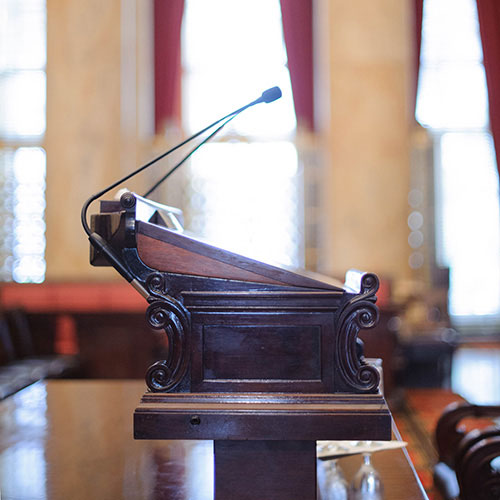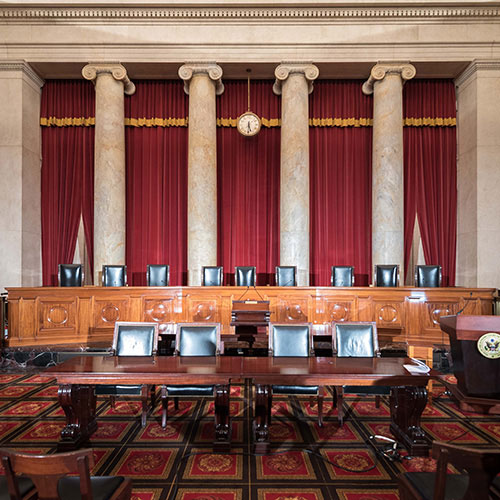By Jill Ryan
Published: Thursday, January 25, 2024 – 4:49am
Updated: Thursday, January 25, 2024 – 7:59am
Experts say that for thousands of years, women were at the forefront of producing the world’s beer. In history’s eyes, brewing is only recently male-dominated. Now, an Arizona-based nonprofit has one goal: to help women reclaim their place.
Gender equality and beer have a much deeper connection than one might think.
Rachel Benkowski hosts a monthly class at Bone Haus Brewing in Fountain Hills, about 40 minutes northeast of downtown Phoenix.
“This Beer School tonight is a lot about the things that I love the most and that’s ancient societies and how beer had a really profound impact on the creation of civilization,” Benkowski said.
She works at the brewery and is also an Egyptologist.
Women have always had a really profound part in beer and beer culture, pretty much up until the industrial revolution,” Benkowski said after the class. “So we’re talking like ancient times. Ancient Mesopotamia, ancient Egypt through the Middle Ages, where alewives were literally making beer for their entire communities.
She says as beer became more mass produced and lucrative, many women got “kicked to the curb.”
Food and Wine magazine reported in 2021 that more than 58% of breweries were owned entirely by men, with 2.9% entirely owned by women.

Enter the Beer Babes Family nonprofit, of which Benkowski is a cofounder. The organization financially helps women in the beer industry in the United States and Canada, and just gave out its first grant in December.
“Being a historian and being in beer and having all of that knowledge, to me, it makes a lot of sense to continue to push women to get back into that role that we’ve always had, you know, just for these last 250 years or so, we haven’t had it,” Benkowski said.
Fundraising events for the Beer Babes Family are happening all over the country. Earlier this month, they were the beneficiary of the annual Copper State Beer Festival in Mesa. The sold out event had garnered bustling crowds who were sampling, partaking or purchasing from the nearly 200 vendors.
“Being involved with Copper State Beer Fest especially, majority of the owners, majority of the people who work in breweries, it is definitely male-dominated,” said Lisa Nunes, the festival’s marketing director.
“So not that we hate on males or anything like that. We love that, we love everything that they’re able to bring to the community, but we also just want to lift up the women, and encourage women who might be interested in beer but maybe think that they don’t belong, that there is a place for them,” Nunes said.

Looking specifically at American history, it wasn’t that long ago when at least one state banned women from bartending unless their fathers or husbands owned the bar.
“It’s something called romantic paternalism,” said Clare Cushman, with the Supreme Court Historical Society. She’s talking about the Goesaert v. Cleary case, which, in 1948, challenged a Michigan law on the grounds that it violated women’s constitutional protections.
“The argument was bars are dangerous places, they’re not a place for women, that they’re places where men get drunk and misbehave. And that to protect women they should not be allowed to bartend. But in fact the true intent behind the case was economic,” Cushman said.
At the time, the nation’s high court evaluated the constitutionality of a gender-related case using a low-level test that Cushman explained as: Does the law make sense? Is it rational?
The Michigan law was upheld in a 6-3 decision, but was repealed by the state Legislature in 1955. And then, the Supreme Court rejected its own de
cision in 1976, when another beer-related case came to bat for gender equality.
“In Oklahoma, there was a law that said that women could buy this 3.2 beer … at the age of 18. But that men had to wait to 21,” Cushman said.
 The late Ruth Bader Ginsburg was actually involved in this case.
The late Ruth Bader Ginsburg was actually involved in this case.
“She did not argue Craig v. Boren, she tried to coach Fred Gilbert, the Oklahoma lawyer, who argued it,” Cushman said.
Cushman also says this case had fit into Ginsburg’s quest to get gender cases evaluated using the highest-level test, like the one that race cases are evaluated on. That form of judicial review is called strict scrutiny.
“The reason why Craig v. Boren is so important as a Supreme Court decision is because it introduced this new concept of heightened scrutiny, or intermediate scrutiny, for laws that are classified on the basis of gender,” Cushman said.
Ginsburg’s goal of strict scrutiny for gender-based cases has never been reached. But there are those who continue to strive for equality from their own corners.
Benkowski of the Beer Babes Family does it by supporting women in the beer industry.
“You can thank beer for civilization, you can thank beer for bread, you can thank beer for writing
. All the things that we know and love you can thank beer for. That was my point for the whole evening. That beer made the freakin’ world,” Benkowski said.
KJZZ’s Kirsten Dorman contributed to this report.




